Police visits to schools will be axed amid £2m funding cuts
- Published
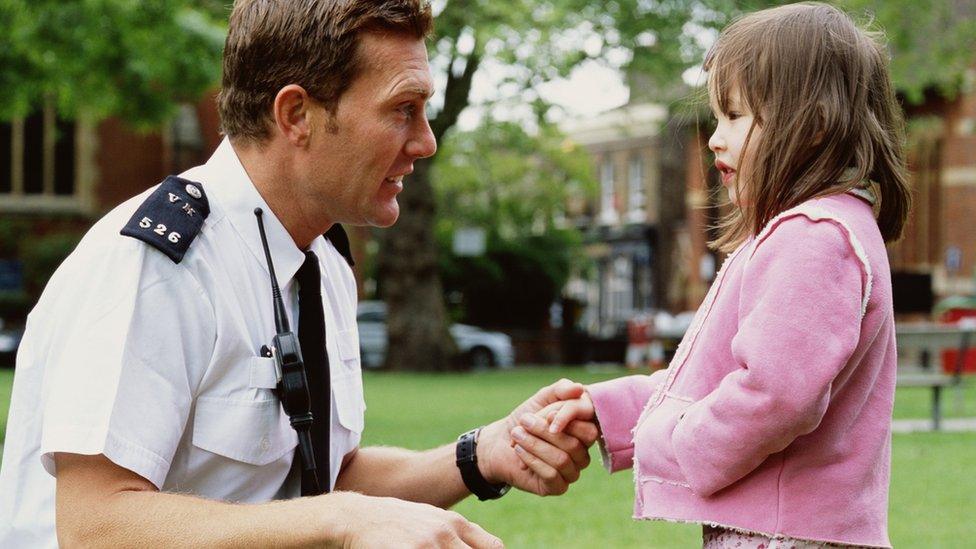
The Welsh government is ending £2m annual funding for police to visit schools
Police will stop visiting schools to help with pupil behaviour after the Welsh government said it will axe the scheme.
School Beat Cymru allowed for 68 officers across Wales' four forces to deliver lessons on substance abuse, safety, safeguarding and behaviour.
But the Welsh government is to stop funding the scheme in order to save £2m a year from April.
It said it was instead focusing on protecting frontline services.
Police commissioners have said they are unhappy at finding out so late about the cut and have promised to fund the scheme until July.
The commissioners of North Wales Police and Dyfed-Powys Police - Andy Dunbobbin and Dafydd Llywelyn - said in letters sent to schools in their areas that officers have been providing bilingual lessons for children aged five to 16.
"They provide support for ensuring the safety, well-being and general development and pastoral care of pupils and their schools," they wrote.
"Unfortunately, the decision to withdraw funding was made by the Welsh government, without any formal engagement or consultation with the Welsh police."
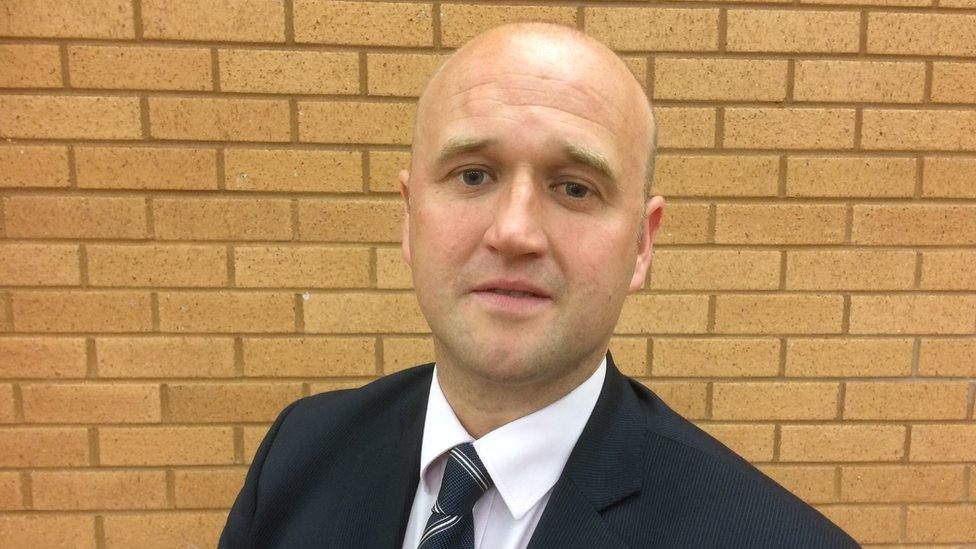
Dyfed-Powys Police commissioner Dafydd Llywelyn says he wants to save the service
Mr Llywelyn promised he will work with colleagues across Wales - including South Wales and Gwent police forces - to try and save the service.
"Any reduction in support for school police officers could jeopardise the development of our children and young people," he said.
Head teacher Osian Jones, from Ysgol Plas Coch in Wrexham, said a police officer has visited at least once a term to engage with pupils - and that losing the resource will have a detrimental effect.
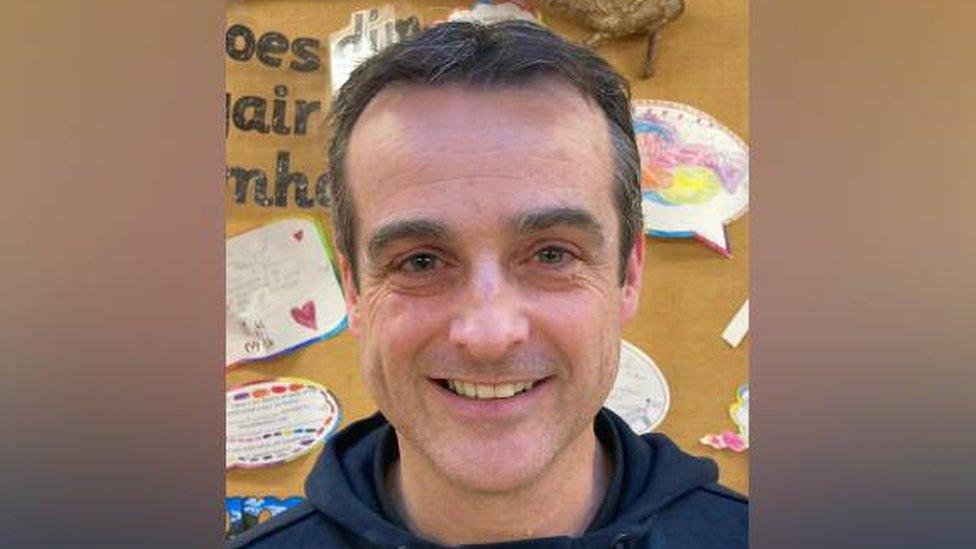
Ysgol Plas Coch head teacher Osian Jones says the police visits have been good for pupils
He said lessons included teaching younger children about being careful with medicine, the difference between good and bad, and what to do in an emergency.
Others discuss anti-social behaviour and both internet and drug safety.
Mr Jones said: "I understand why decisions have to be made in terms of funding, but we can rely on these visits to enrich the curriculum to turn pupils into responsible citizens."
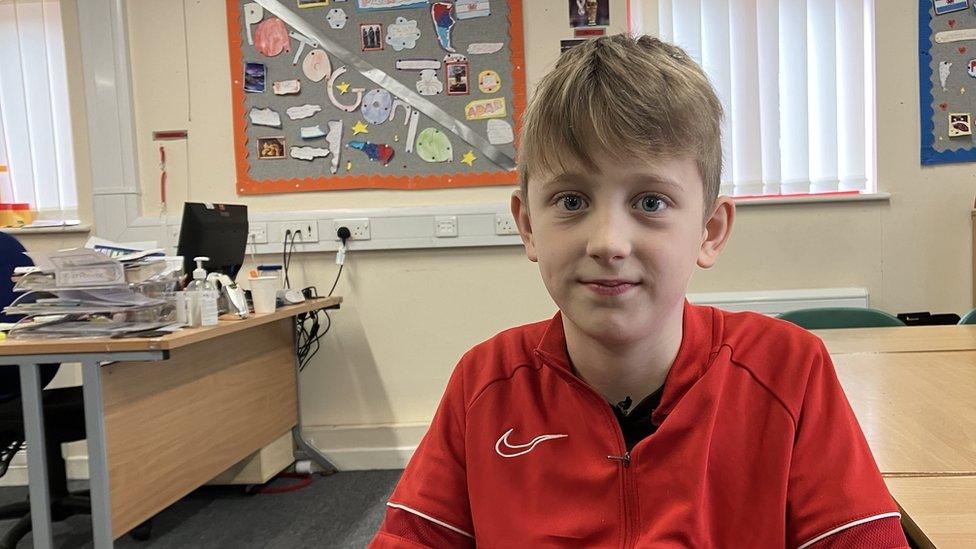
Killian, 10, says police officers teach them about road safety and drugs awareness
One pupil, 10-year-old Killian, said the scheme "teaches us safety around roads telling us the dangers of doing drugs".
"If we are bad, [the police officer] shows us what happens," he said.
Louis, nine, added: "I remember in Year three or four, he told us to verify our passwords every three or four weeks, just to make sure they are still safe.
"When I first met him I was a bit nervous but then I started to like him."
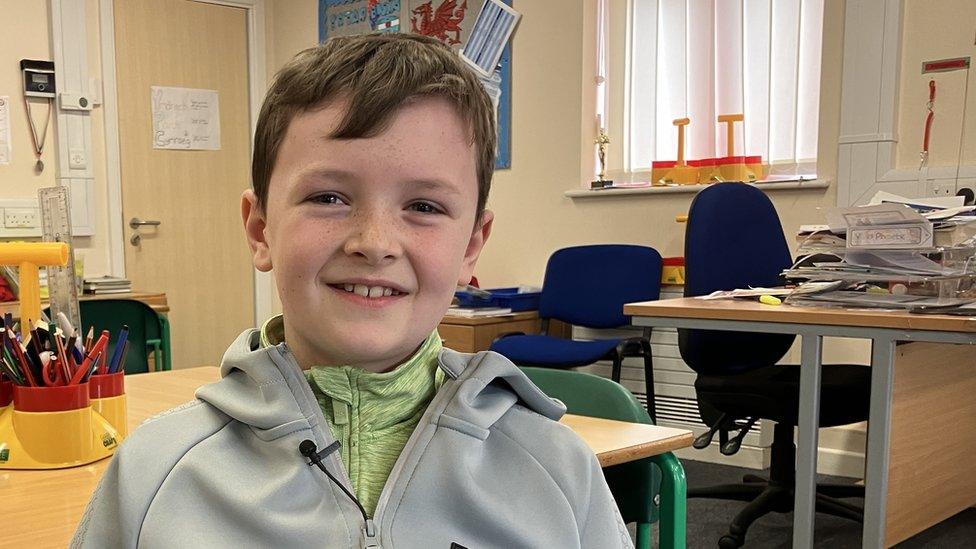
School pupil Louis says he remembers helpful advice from the sessions, including being mindful of internet passwords
The Welsh government said it had had to take difficult decisions about its priorities, and was focusing on frontline services.
It said: "The NHS and services in Wales are facing the toughest financial pressures in recent history. We have had to take very difficult decisions about the Welsh government's commitments and priorities, with a focus on protecting frontline services and saving lives."
It added: "We have worked, and are continuing to work, closely with the police on the impact of the funding changes."
It said it "continued to protect our frontline substance misuse funding at £67m", which included "ring-fenced allocations for children and young people to £6.25m".
It said that the "landscape around wellbeing for learners on a range of important issues has changed significantly since the introduction of the programme" and particularly with the introduction of the new curriculum.
Additional reporting by Matthew Richards

DARK LAND : Hunting the killers of Wales's most shocking unsolved murders
FOR THE LOVE OF SPORT: The biggest names in Welsh sport and the stories behind them

- Published17 October 2023

- Published4 October 2023

- Published14 September 2023
